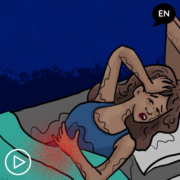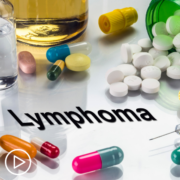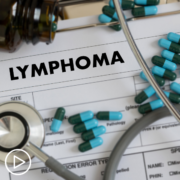How a Gastrointestinal Symptom Led to My DLBCL Diagnosis
How a Gastrointestinal Symptom Led to My DLBCL Diagnosis from Patient Empowerment Network on Vimeo.
Charles Clawson shares how experiencing some heartburn after eating a spicy wonton led him to being diagnosed with Diffuse Large B-Cell Lymphoma (DLBCL).
See More from [ACT]IVATED DLBCL
Download Resource Guide en español
Related Resources:
Transcript:
My name is Charles Clawson, and I was diagnosed with diffuse large B-cell lymphoma after my diagnosis with non-Hodgkin follicular lymphoma transformed into DLBCL. Strangely, my initial diagnosis came after the lone symptom of experiencing heartburn after eating a spicy wonton. After seeing a gastrointestinal doctor, my lymphoma was discovered at the same time my wife and I were asked to serve a mission in Norway.
My treatment journey began with three rounds of chemotherapy, which brought on horrible nausea. I was feeling so unwell that my oncologist ordered another scan for my lymphoma. Shockingly, my lymphoma had actually worsened during the chemotherapy, so my doctor sent me to Huntsman Cancer Institute for an emergency evaluation. They gave me a prognosis that I had three days to live, and my wife couldn’t even visit me due to COVID-19 restrictions.
Fortunately, my doctors decided to do another biopsy from a different location and then discovered that my lymphoma was actually DLBCL. I had to be fitted with a feeding tube for several months while a hole in my esophagus healed, and I had three rounds of E-POCH followed by three rounds of R-CHOP. I completed treatment in June 2021 and have been in remission ever since then. I’m so grateful that I’m here and plan to serve on an upcoming mission trip in Denver, Colorado.
Some of the things I’ve learned on my path to empowerment include:
- Don’t be afraid to get a second opinion. It could change your diagnosis and ultimately save your life.
- Make sure you get enough biopsies to accurately diagnose your lymphoma subtype.
- I thank God, my incredible angel wife, and amazing medical providers at Huntsman for saving my life.
For me, these actions are key to staying on my path to empowerment.
Share Your Feedback:
Create your own user feedback survey







